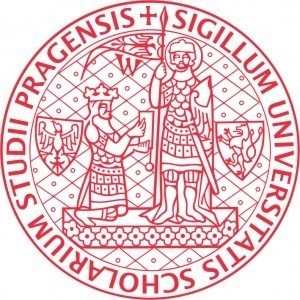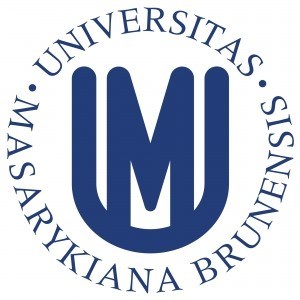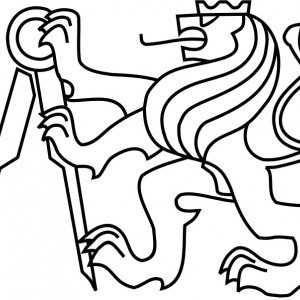Photos of university / #_charles.university_
The TEMA European Societies, Identity, and Development program at Charles University offers an in-depth exploration of the complex social, cultural, and political dynamics shaping European societies today. Designed for students interested in understanding the diverse identities, historical developments, and socio-political challenges facing Europe, this interdisciplinary program combines insights from sociology, history, political science, and cultural studies. Throughout the coursework, students examine the evolution of European societies, investigating the processes of integration, national identity formation, multiculturalism, and social change. The program emphasizes critical analysis of current issues such as migration, nationalism, regionalism, and the impact of globalization on European cohesion. Students will engage with a variety of teaching methods, including lectures, seminars, case studies, and fieldwork, fostering both theoretical understanding and practical skills. The curriculum features modules on European history, contemporary social movements, political institutions, and intercultural communication, preparing graduates for careers in academia, public policy, international organizations, or cultural management. Additionally, the program encourages active participation in debates and research projects, promoting a nuanced understanding of the diverse identities that constitute modern European societies. Faculty members are distinguished scholars with expertise in European studies, ensuring that students receive high-quality education grounded in current research. The program also offers opportunities for international exchange and internships, allowing students to gain practical experience and develop a global perspective. Graduates leave the program equipped with comprehensive knowledge of European socio-political issues, analytical skills, and a critical outlook necessary for actively contributing to the development and integration of European communities. This program is ideal for students committed to understanding the complexities of European society and eager to influence positive social change within the continent.
The TEMA Erasmus Mundus Master Course (120 ECTS) takes two years (four semesters), includes an M1 and an M2 degree course.
Its development was financed by the Socrates Erasmus Curriculum Development Grant.
- Required languages:
- English
- French
- For other possibility see “English ONLY”
Guarantee of two common objectives:
- A certain homogeneity in training
- The appreciation of the specificities of each partner university
The principal thematic goal:
- To study scientific analyses of space and territorial problematic
At each partner university, the seminar is held according to the same principles: the core texts refer to the four main issues of the MA programme, i.e.
- CIVILIZATION
- NATION
- REGION
- CITY
These four objects represent four scales and four possible approaches and different viewpoints to the historical, political, social and cultural problems of space and territory. Accordingly, the four readers (Civilisation, Nation, Region and City) put together by the teachers and researchers of the partner universities, mean the heart of the TEMA EMMC. Seminars based on TEMA are offered in the same order by each partner university.
Added value for TEMA students:
- Multidisciplinary approach within the international context of social sciences, in which History, Geography, Sociology, Anthropology, Urbanism and Area Planning are concerned
- Special emphasis on methodological questions
TWO PARTS OF TEMA
TEMA is divided into two parts:
- A common study core of foundational and methodological courses
- The educational approach of this European course is based on a core syllabus, which focuses upon the methodology of social sciences and which expressed by the common approach to important and classical texts of each disciplines concerned.
- A unit of specialized and research courses
- The methodological and the common TEMA seminars are followed by thematic and research seminars, which represent the specificities of each partner university. These seminars allow the appreciation of the complementarity and the specificity of the partner universities, and they contribute to the diversification and to the specialization of the common training on the individual level.
At the beginning of each academic year the course includes two intensive weeks focusing on a specific subject of the TEMA programme and the teambuilding between TEMA students and teachers.
- Students are gradually prepared to be able to write their MA thesis from the introductory course
- Each student is supervised by two tutors (one from each partner university, in which the student chooses to be enrolled), who assure a personal guidance
- Students are required to study at least at two partner universities
- Students choose the hosting and the mobility institutions on the application form (mobility period is in the semester 3)
- The final decision on the students' mobility track is taken by the TEMA Academic Board in accordance with the students' scientific interests and needs. This mobility is a significant contribution to the strengthening of intercultural dialogue and to the cooperation between European citizens. It is the best way to fight against racism and xenophobia as well as to promote common European values.
DEGREES
ECTS MECHANISM
Every study unit of the TEMA European Master Course is translated into ECTS credits. The number of ECTS credits earned is also indicated in the diploma supplement, in accordance with the criterion established by the European Committee, the Council of Europe and the UNESCO/CEPES.
TEMA graduates receive a double or multiple degree, along with a diploma supplement, allowing them to enter into the professions in the area of local, regional, national and European territorial administration, in urban planning and research institutions.
In each partner country the TEMA Master Course is fully recognized as an accredited Master’s program in History or Social Sciences.
- In Budapest, the TEMA European Master Course was accredited by the Hungarian Accreditation Board (MAB).
- In Paris, the TEMA European Master Course is recognized as a specialization within the Master’s in Social Sciences “Territory, Space, Society” (Territoires, Espaces, Sociétés – T.E.S.). The diploma was officially recognized by the decision of the Ministry of Higher Education and Research, Directorate General of Higher Education on the 5th of September, 2005, under the following reference number: 20050116. The recognition was updated by the decision made on the 19th of January, 2009.
- In Catania, the Council of the Faculty of Arts and Philosophy approved, by decision n˚ 11 on the 26th of October, 2007, the Convention concerning the implementation of the TEMA European Master Course „European Territories: Identity and Development” and the TEMA curriculum, a recognized specialization within the Master’s in History and Analysis of Territory (Master in Storia e Analisi del Territorio – Territori europei). The Convention and curriculum of the TEMA Master Course were also approved by the Academic Senate of the Ateneo, decision n˚ 98 on the 21st of January, 2008. Taking into account the autonomy of the universities in Italy, this process leads to the full recognition of the Master Course.
- In Prague, the TEMA Master Course is recognized as a specialization within the Master's program in History under the title TEMA – EUROPEAN SOCIETIES: IDENTITY AND DEVELOPMENT / SOCIÉTÉS EUROPÉENNES: IDENTITÉ ET DÉVELOPPEMENT , accredited in 2014 by the Czech Accreditation Board under the following reference number: 6095/2014. The number of the study program is: N7105, the number of the accreditation decision 7105Txxx.
ENGLISH ONLY
If you are a student interested in studying the Master TEMA program in English, but are not the recipient of an Erasmus Mundus scholarship, we offer you the chance to take advantage of the new TEMA Prague-Budapest option, and pursue your studies in an interdisciplinary program with an international perspective.
- You have to prepare your application form for the option *English Only*
- Compared to the standard Master TEMA program, the Prague-Budapest option is a mobility limited to one year in Budapest, Hungary and another in Prague, Czech Republic.
- TEMA graduates receive a double degree of the two involved universities, the Eötvös Loránd University of Budapest and the Charles University of Prague, along with a diploma supplement, allowing them to enter into the professions in the area of local, regional, national and European territorial administration, in urban planning and research institutions. The Master TEMA course is fully recognized by both partner universities as an accredited Master program in History and Social Sciences.
Although the primary language of instruction for this Master Course is English, the knowledge of French, in accordance to the bilingual spirit and the original concept of Master TEMA, is also required.
However, for those who need to improve their language skills, the two partner universities offer French language courses that cover general topics, as well as the specific terminology of the social sciences.
For students who choose to enrol in Budapest or Prague, the respective universities offer courses in Hungarian and Czech language and civilization, designed to facilitate student integration into the educational and cultural activities of the institutions as well as into daily student life.
Eligible are students having a first degree (BA/BSc /180 ECTS/) in History, Geography, Anthropology, Ethnography, Cultural studies, Urban Studies, Nationalism Studies, Law, Economy, Administration. The selection is based on academic excellence and proficiency in English and in French, which are the languages of instruction.
The financing of the TEMA European Societies, Identity and Development program at Charles University is primarily supported through a combination of tuition fees, government funding, and research grants. As a master's program offered in the Czech Republic, students enrolled in the program are typically required to pay tuition fees, which vary depending on the student's nationality and residence status. EU students usually benefit from lower tuition fees compared to international students from outside the European Union. The program also benefits from funding allocated by the university's central budget, which supports academic activities, faculty salaries, and administrative costs associated with delivering the curriculum. Additionally, students may have access to research grants and scholarships provided by the university or external organizations that promote studies related to European societies, identity, and development. These financial aids are designed to assist students in covering their living expenses, study materials, and participation in conferences or research projects. The program's structure emphasizes research and international cooperation, allowing students to access various grant opportunities offered by European Union programs such as Erasmus+ or Horizon Europe. Such funding options enable students to undertake exchange semesters or participate in collaborative projects across Europe, further enriching their academic experience. The university also collaborates with governmental and private sector partners that may provide sponsorships or project funding for specific research activities within the program. Overall, the financing model for the TEMA program aims to ensure accessibility for a diverse student body while maintaining high academic standards and facilitating international research collaborations. Students are encouraged to explore the available scholarships and funding schemes early in their application process to maximize their financial support options and ensure a smooth educational journey.
The TEMA European Societies: Identity and Development program at Charles University offers an interdisciplinary approach to understanding the historical, cultural, social, and political development of European societies. This program aims to provide students with a comprehensive understanding of the formation and transformation of European identities, examining diverse social phenomena, historical contexts, and contemporary issues faced by European nations. The curriculum is designed to foster critical thinking and analytical skills through a combination of theoretical lectures, seminars, and practical projects. Students will engage with topics such as European integration, multiculturalism, nationalism, social cohesion, and the impact of globalization on European identities. The program also emphasizes the importance of interdisciplinary studies by integrating history, sociology, political science, and cultural studies. Graduates of this program will be equipped with the knowledge and skills necessary for careers in academia, international organizations, government agencies, NGOs, and cultural institutions. The program is delivered in a collaborative environment, encouraging dialogue among students from diverse backgrounds, and often involves guest lectures, workshops, and fieldwork to enhance the learning experience. Students benefit from the university’s extensive network of European partners and alumni, offering opportunities for internships and exchanges across Europe. The program duration typically spans two years for full-time students, with options for part-time study. Upon successful completion, graduates receive a Master’s degree in European Societies: Identity and Development, qualifying them to analyze complex social phenomena and contribute to policy-making processes related to European integration and social development. The program also emphasizes research skills, preparing students to undertake independent research projects and contribute to scholarly publications in the field. The university's vibrant academic community and the central location in Prague provide an enriching environment for cultural and intellectual exchange. Overall, the TEMA program strives to develop well-rounded experts capable of understanding and addressing the social challenges facing European societies today.







